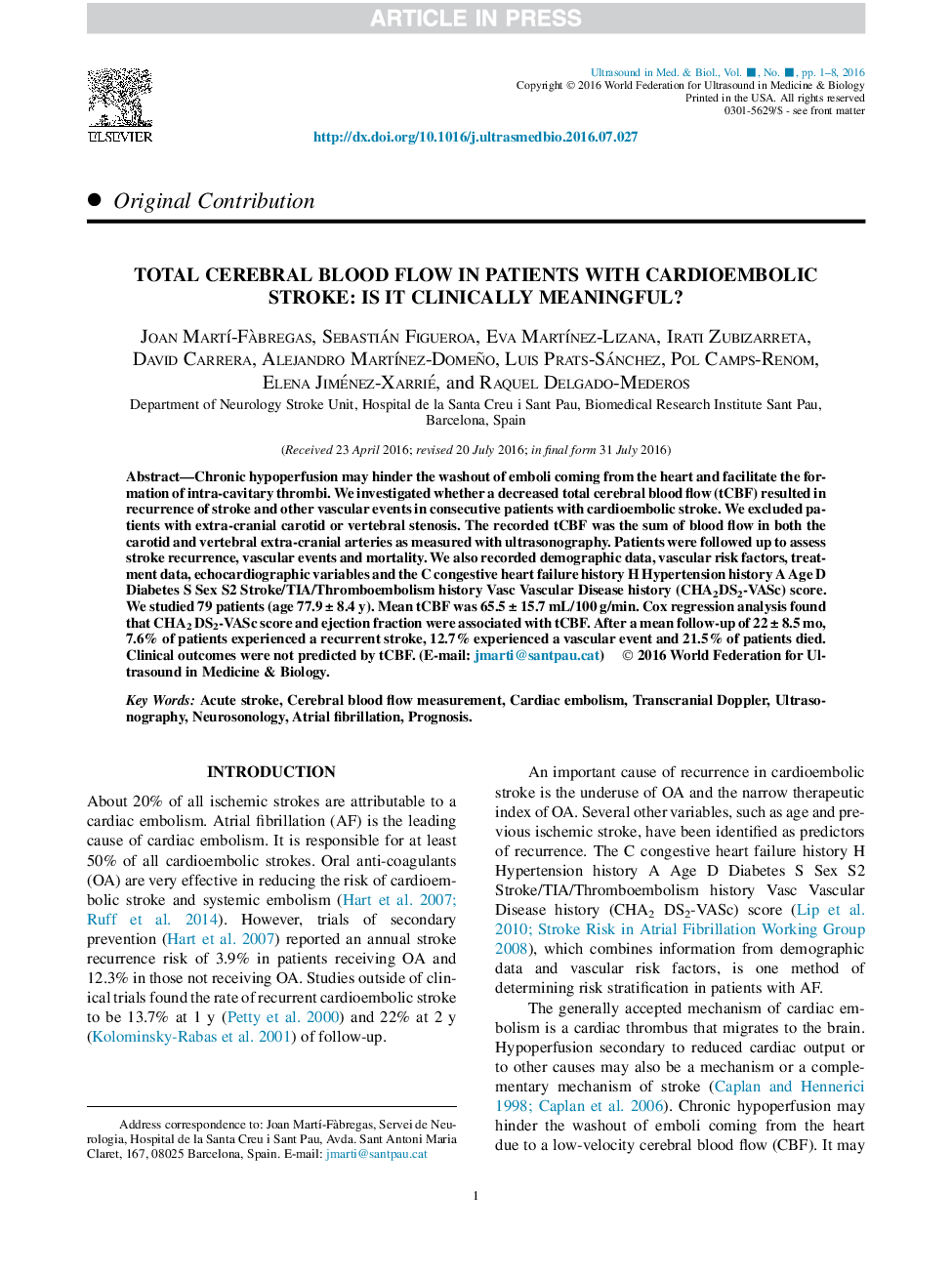| Article ID | Journal | Published Year | Pages | File Type |
|---|---|---|---|---|
| 5485777 | Ultrasound in Medicine & Biology | 2016 | 8 Pages |
Abstract
Chronic hypoperfusion may hinder the washout of emboli coming from the heart and facilitate the formation of intra-cavitary thrombi. We investigated whether a decreased total cerebral blood flow (tCBF) resulted in recurrence of stroke and other vascular events in consecutive patients with cardioembolic stroke. We excluded patients with extra-cranial carotid or vertebral stenosis. The recorded tCBF was the sum of blood flow in both the carotid and vertebral extra-cranial arteries as measured with ultrasonography. Patients were followed up to assess stroke recurrence, vascular events and mortality. We also recorded demographic data, vascular risk factors, treatment data, echocardiographic variables and the C congestive heart failure history H Hypertension history A Age D Diabetes S Sex S2 Stroke/TIA/Thromboembolism history Vasc Vascular Disease history (CHA2DS2-VASc) score. We studied 79 patients (age 77.9 ± 8.4 y). Mean tCBF was 65.5 ± 15.7 mL/100 g/min. Cox regression analysis found that CHA2 DS2-VASc score and ejection fraction were associated with tCBF. After a mean follow-up of 22 ± 8.5 mo, 7.6% of patients experienced a recurrent stroke, 12.7% experienced a vascular event and 21.5% of patients died. Clinical outcomes were not predicted by tCBF.
Keywords
Related Topics
Physical Sciences and Engineering
Physics and Astronomy
Acoustics and Ultrasonics
Authors
Joan MartÃ-FÃ bregas, Sebastián Figueroa, Eva MartÃnez-Lizana, Irati Zubizarreta, David Carrera, Alejandro MartÃnez-Domeño, Luis Prats-Sánchez, Pol Camps-Renom, Elena Jiménez-Xarrié, Raquel Delgado-Mederos,
